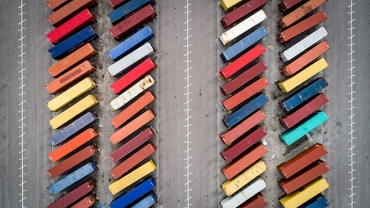
Extended producer responsibility for the textiles industry
28/06/23
As of 1 July 2023, the extended producer responsibility scheme for textiles will be introduced. The scheme will make producers and importers placing certain textile products onto the Dutch market for the first time responsible for the collection, recycling and reuse of textiles. The aim of the extended producer responsibility is to reduce the amount of textile waste and resource extraction as much as possible by improving the circular use of textile.

What does this mean for my company?
If your business brings clothing and household textiles onto the Dutch market for the first time it will fall under the scope of the extended producer responsibility scheme, irrespective of the fact if the textiles are supplied B2B or B2C.
Your business will have to set up their own clothing collection system or join a producer organization to comply with the goals set in the extended producer responsibility decree (i.e. that a certain amount of the textiles that have been brought onto the Dutch market will be reused or recycled).
It is therefore important to analyze how your business will be able to comply with the goals set, assess which actions need to be taken and who will be responsible within your organization. It will also be important to assess which data/information needs to be available to be able to comply with the required reporting, evidencing that the goals set are reached.
Background
Recent figures shows that the textile industry is one of the most polluting industries. One of the reasons for this pollution is the increasing demand for textile, and the great amount of textiles that is not recycled nor being reused. The Dutch government already had taken action to stimulate the recycling and reuse of clothing, however these have not led to the desired outcome. Therefore, they decided to introduce the extended producer responsibility scheme.
The product that will fall under the scheme are:
- Household linen as referred to in heading 6302,
- Consumer and company clothing as referred to in chapter 61 and 62.
Actions to be taken
In case your business falls within the scope of the extended producer responsibility scheme it will be required to report the amount and type of textiles that your company is planning to bring onto the Dutch market in the coming 12 months to the Dutch government. This needs to be done within the period 1 July – 12 August 2023. Businesses which are not established in the Netherlands must appoint an authorized representative to do so on their behalf.
As of 2025 certain goals have to be fulfilled, these goals include that a minimum amount of textiles brought onto the Dutch market that must be either recycled or reused. The minimum percentages laid down in the decree will slightly increase each year until the final percentages will be reached in 2030.
To fulfill the goals your business must finance and organize a textile collection system. For some businesses, it might not be feasible to organize a collection system itself. For these businesses it it’s possible to join a production organization, such as ‘Stichting UPV Textiel’, through which your business will be able to comply.
Businesses falling under the scope of the extended producer responsibility scheme will have to file an annual report to the Dutch government. The goals set will come into force only as of 2025, the amount of data that needs to be reported over the years 2023 and 2024 as such will be much less. Over those years your business is only obliged to report the type and amount of textiles that it has brought onto the Dutch market, while after 2025 the results of the goals set must be reported as well.
What can PwC offer your business?
Our global trade team have a lot of experienced specialists in the field of environmental and sustainable measures and can help you with amongst others:
- the assessment how the extended producer responsibility scheme will impact your business;
- analyze how your business can comply with the reporting obligations and goals set in the extend producer responsibility scheme;
- help you with analyzing what data is already available within your business and assess what data has to be collected and how to do this in an efficient manner in order to fulfill your reporting obligations.
If you have questions about the extended producer responsibility scheme and how it will impact your business, please do not hesitate to contact us.
Contact us

















